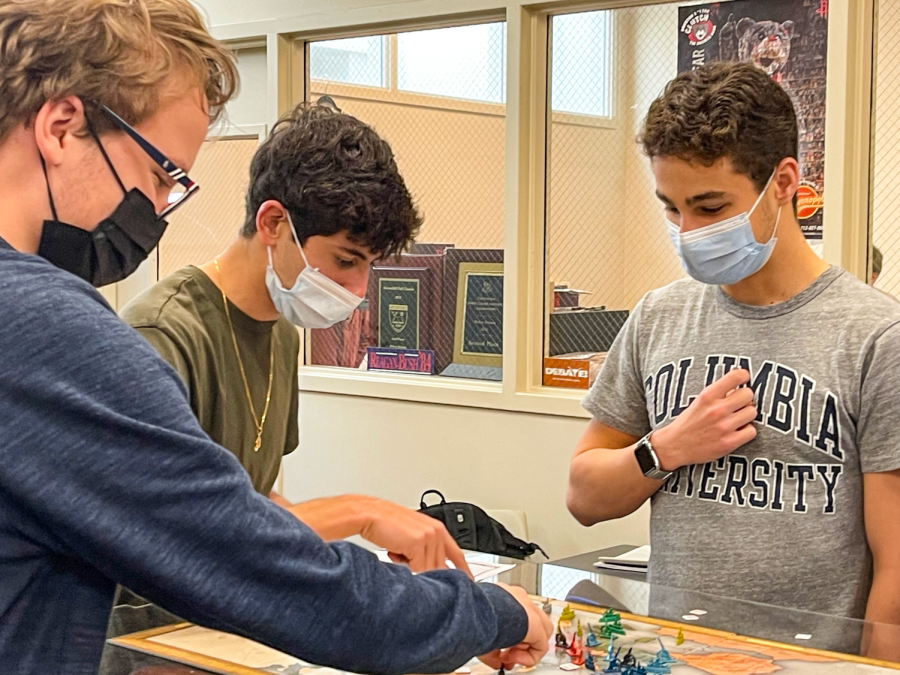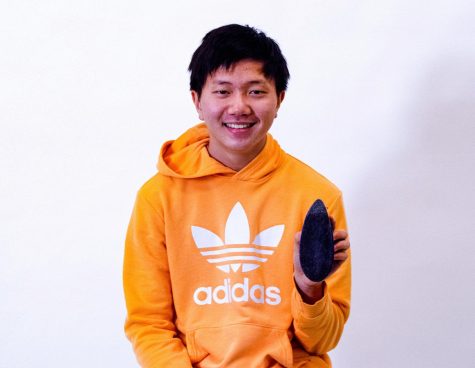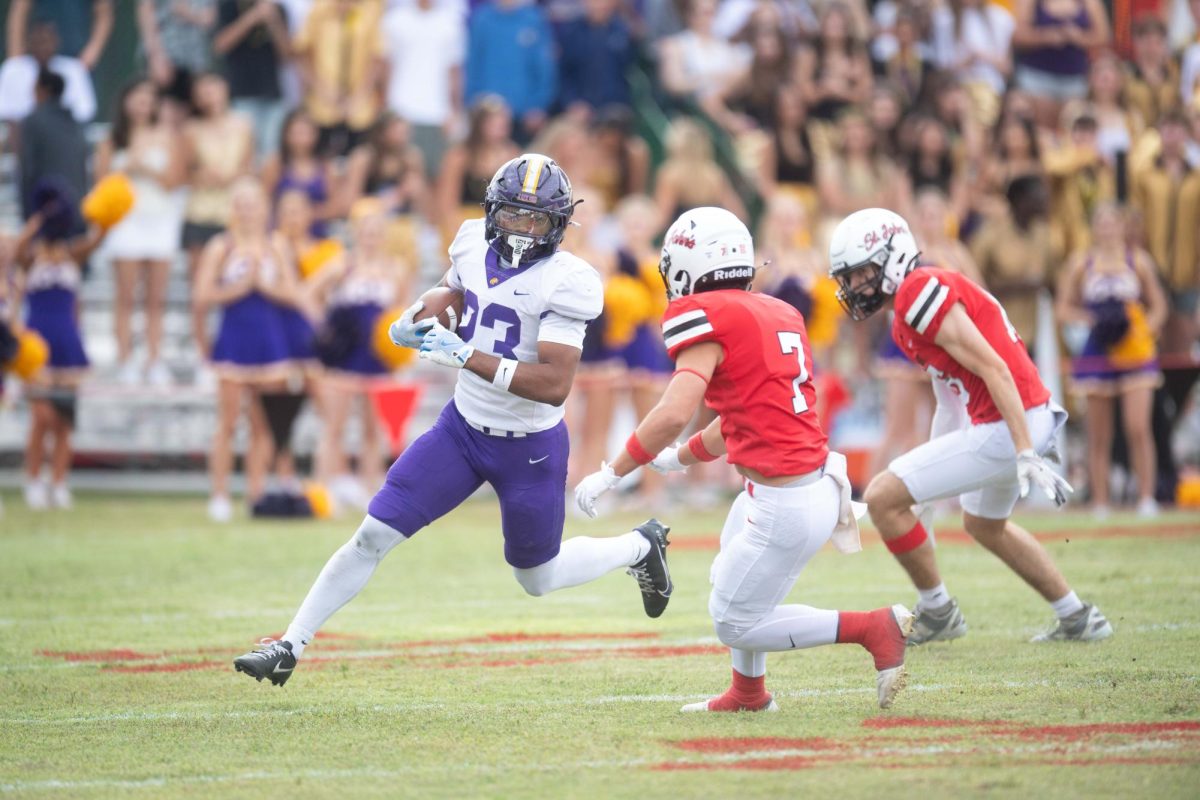Betrayal creates enemies in ‘Diplomacy’
Juniors Nick Bhasin and Alexander Farahbod and sophomore Cole Hartung position units on the game board for Diplomacy.
January 21, 2022
“Betrayal is the best part of the game,” said junior Alexander Farahbod.
Diplomacy, a game where players play as countries in 20th century Europe and fight for dominance of Europe, is a game full of alliances, strategy and betrayal.
In “International Relations and Diplomacy,” a class taught by Mr. Eric Emerson, Upper School debate coach, students not only play Diplomacy but also learn about the historical foreign policies of major countries as well as theories of international relations.
Some of the class’s required readings were from books such as “Realism, Liberalism, and Constructivism in the Pursuit of Security” and “International Relations Theory.”
“The readings and lectures are my favorite part of the class,” said sophomore Cole Hartung. “It’s interesting to learn about how countries interact with each other.”
An intense game, Diplomacy can evoke some bitter feelings.
“In this game, we were playing as Russia, which has an early advantage because it has four units instead of three,” Hartung said. “But everyone started to gang up on us and we were the second country to fall.”
Unlike in the popular family board games Monopoly or Game of Life, succeeding in Diplomacy involves skills rather than luck.
“There’s no dice used or luck involved, but rather students have to use skills involving cooperation and diplomacy to eventually win the game,” Mr. Emerson said. “The value of having a board game in this class is that board games provide an excellent metaphor for foreign policy that can continually be updated as the world evolves as well as providing different scenarios so that it doesn’t get boring.”
The class can also be applied to the school environment in important and necessary ways, he said.
“I hope the game is relevant for the students’ understanding of important negotiations and sharing skills as well as helping students be diplomatic in the face of pressure,” Mr. Emerson said. “My advice to players is, besides having strong alliances, to be bold early and be smart later.”













